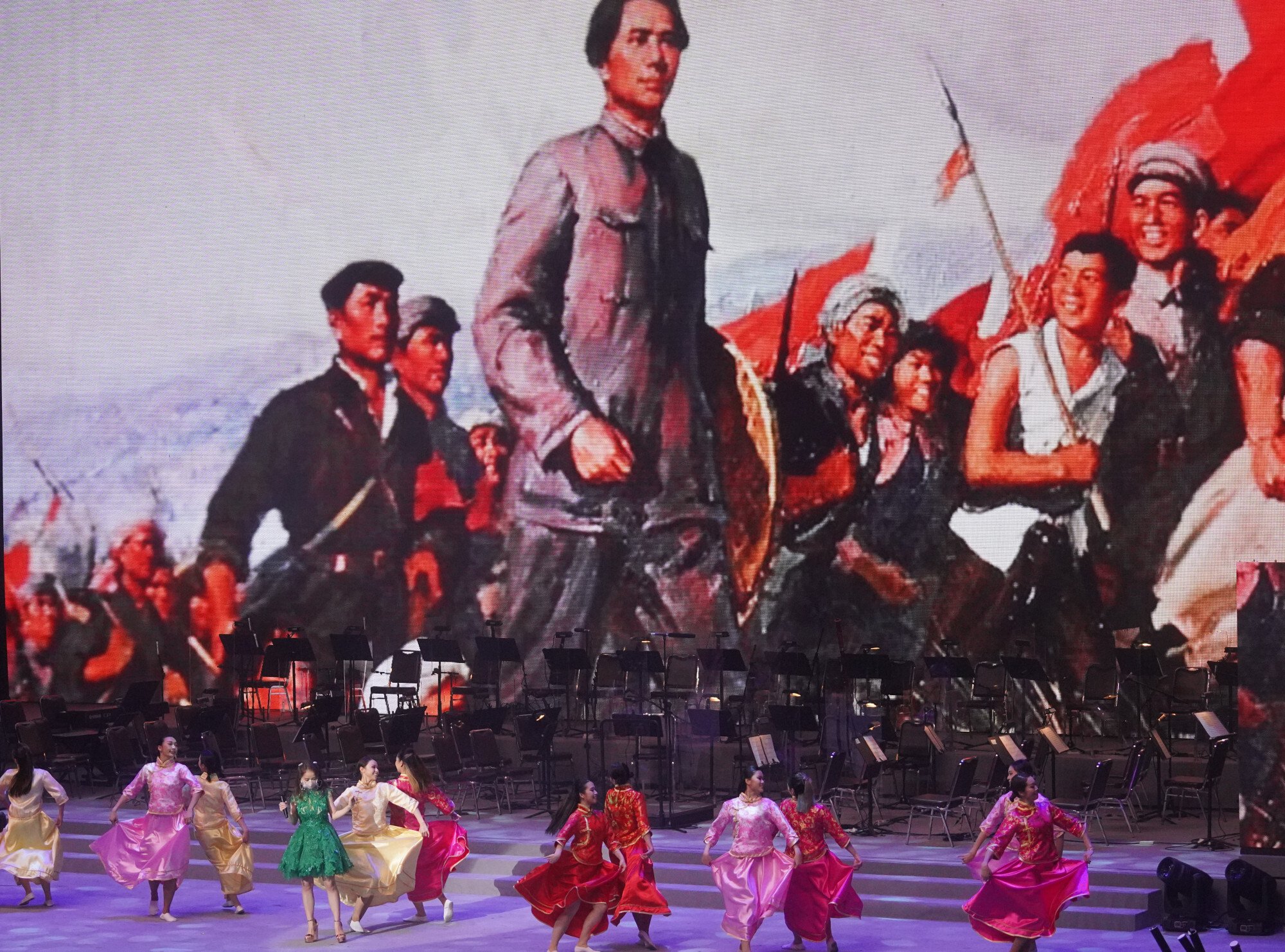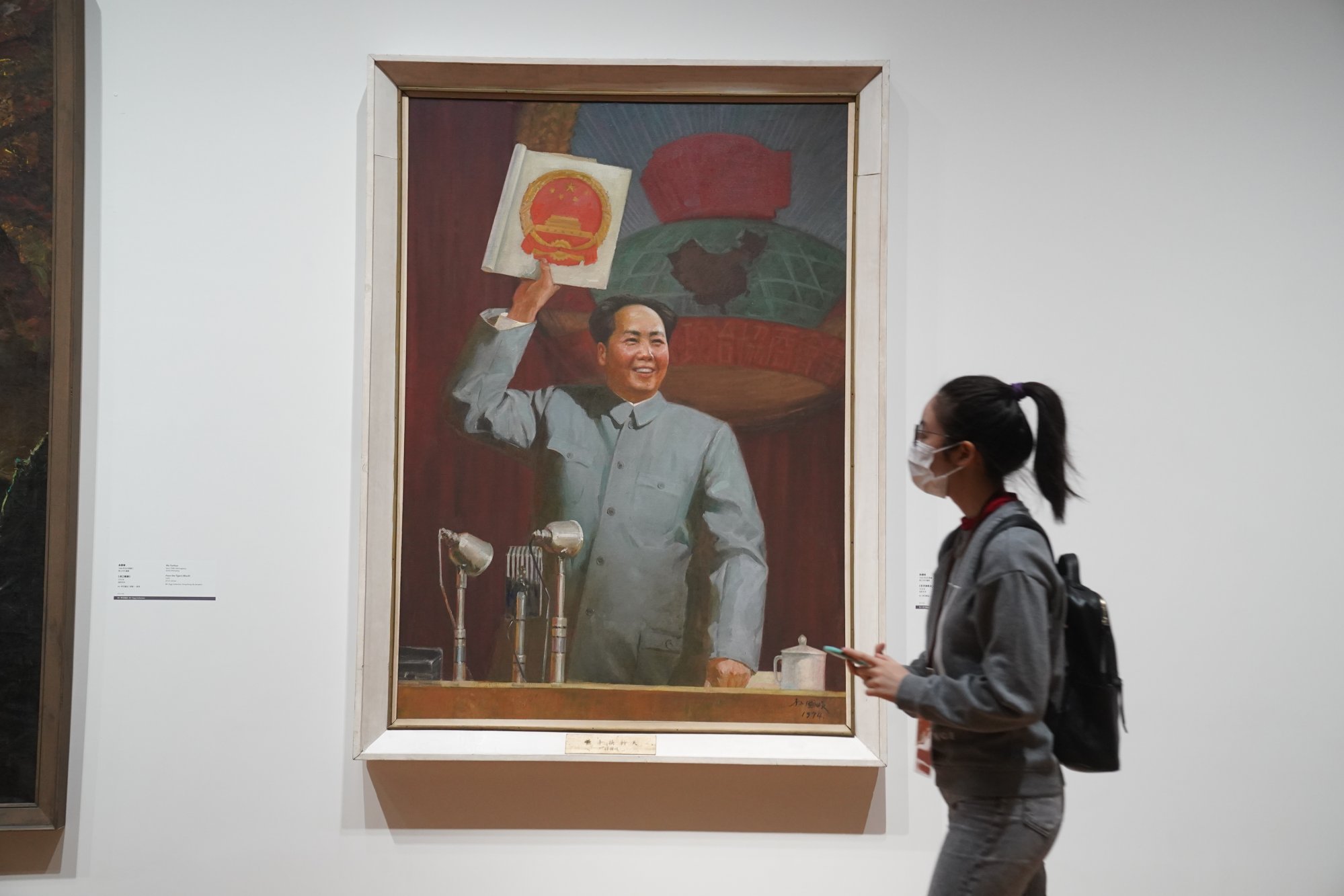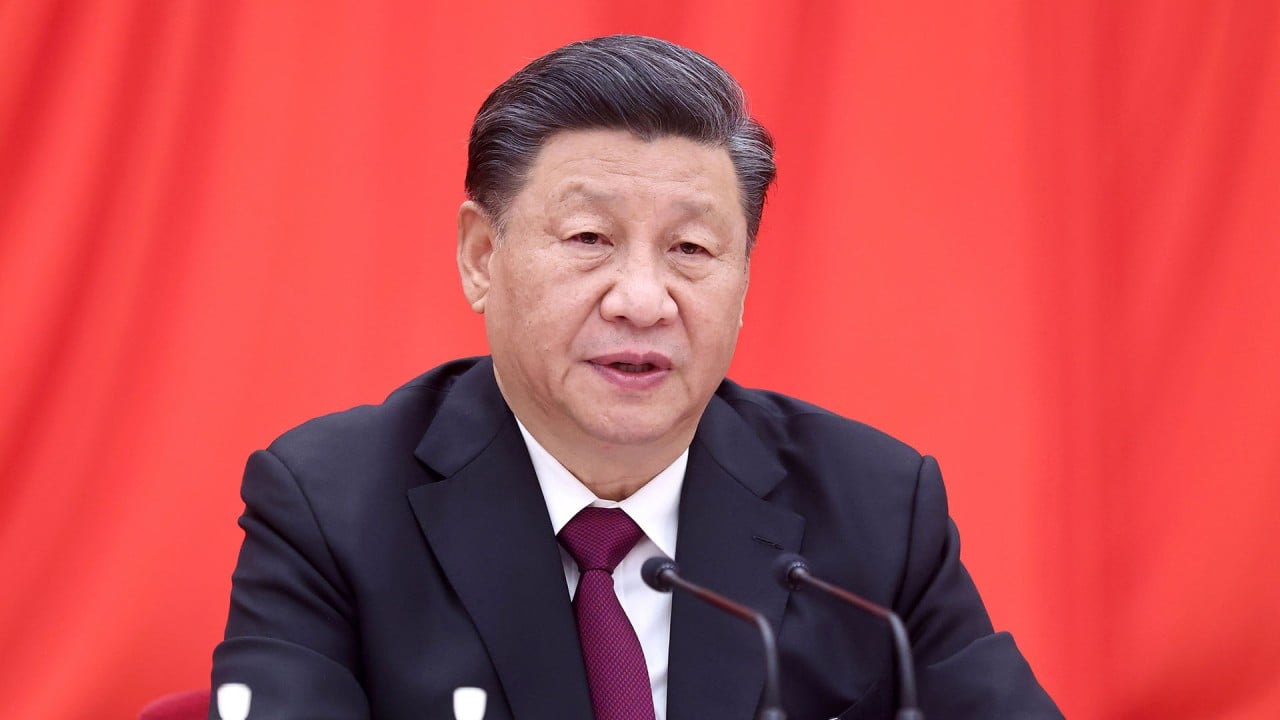
Why rising ultra-left nationalism is the biggest danger to China’s development
- China’s clash with the United States has given leftists an opening to push for their agenda under the guise of patriotism and allegiance to communist ideals
- A senior official’s warning that China must learn lessons from the Mao era reflects fears that such sentiment threatens to derail economic development
The period of the Great Leap Forward, the People’s Communes and the Anti-Rightist Campaign from 1957 to 1962 may be a bygone era the Chinese leadership prefers to leave unmentioned because of its devastating consequences.
To brook no dissent, Mao also launched the Anti-Rightist Campaign to target the official elites and intellectuals who had doubts or criticisms about his policies and labelled them “bourgeois” and sympathisers of the Western ideals.
Mao’s irrational and misguided policies, fanned by extreme ultra-left nationalism, produced catastrophic results: industrial output and grain production fell sharply and millions of people died in famine during the period although the natural disasters of drought and floods also played a role.

China’s bungling censors turned Peng Shuai mess into a major incident
Apparently, Han used the Great Leap Forward analogy to caution officials about their overzealous efforts to apply the one-size-fits-all approach to fulfil their carbon emission targets and caused a severe power crunch affecting all walks of life and economic performance this past autumn. China has announced it will ensure its carbon emissions peak by 2030 and that the country will become carbon neutral by 2060.
His warning of People’s Communes probably reflected rising worries that China’s public vows of promoting income redistribution in the name of “common prosperity” could lead to misguided and irrational calls for “robbing the rich to help the poor” and the old days of egalitarianism.
In fact, soon after Xi announced in August that “common prosperity” was a fundamental requirement of socialism and urged the high-income individuals and businesses to “voluntarily give back more to society”, Han was the first senior official to state that the campaign was not to rob the rich but to “make the economic pie bigger and divide it well”.

At a time when senior officials have nothing but high praise for the party and its policies, Han is a brave soul to sound the warning.
Behind his warning is the worry that ultra-left nationalist sentiment is making a comeback with a vengeance, threatening to derail the country’s economic development.
The situation has started to change since Xi came to power in late 2012 and strengthened the party’s ideological controls at all levels of society. It is particularly true after China has started to clash openly with the US and its Western allies along ideological lines and over values.
Xi’s new era is here, but this is just the start
This has given the leftists an opening to push for their agenda under the guise of patriotism and allegiance to communist ideals just as the state media and officials brook no criticism, constructive or otherwise, from the foreign countries. They have started to assert control of the narrative and will attack and label anyone at home who offers different opinions as unpatriotic and appeasing the West.
Just as the Chinese government started to preach “common prosperity”, it launched a spate of intense regulatory actions against a wide range of private companies from technology giants, e-commerce platforms, education service providers, and e-hailing and delivery businesses. Those policies may be long-overdue and sensible moves to scale back excesses in those sectors but the leftists went into overdrive, hailing those measures as the start of “a profound revolution” to reduce inequalities that capitalism has brought about and saying that China would no longer tolerate capitalists striking rich overnight.
Those loose comments, widely shared on social media platforms and tacitly encouraged by propaganda officials, have caused considerable concerns at home and abroad and already invited some comparison to Mao’s era.
The latest example is the online campaign against Lenovo, China’s largest computer maker, single-handedly orchestrated by Sima Nan, a social commentator, who has attracted millions of followers because of his strident leftist views and open admiration for Mao’s era.
He used documents which were more than three decades old to question Lenovo’s alleged selling of state assets on the cheap – a third rail issue in Chinese politics and businesses.
Back in the 1980s and 1990s, the Chinese government approved privatisation of inefficient state-owned firms through stock market listings or attracting foreign and private investment.
Most of those firms have since thrived but there have been leftist voices questioning whether the state assets were sold on the cheap. In the case of Lenovo, it used to be majority owned by the Chinese Academy of Sciences, a state entity but through stock market listing and further expansion, its shareholding has been repeatedly diluted even though the academy already reaped profits thousands of times over its initial investment.
Sima Nan also accused Lenovo’s top executives of paying themselves sky-high salaries while the company’s performance remains mediocre, tapping into the prevalent hate for the rich. Sima Nan’s rhetoric has inspired other online users to compare the compositions of boards of directors between Lenovo and Huawei to show Lenovo’s board has a number of foreigners as compared to none at Huawei. This seems to suggest that Lenovo being an international company is unpatriotic.
Interestingly, despite the heated online discussions, the mainstream state media outlets have refrained from weighing in, suggesting that officials don’t believe Sima’s allegations are credible. But they have done nothing to censor him, in contrast to their overzealous efforts to scrub posts deemed unpatriotic or subject to foreign influences.
In the current climate, perhaps officials may have resorted to their old mantra which dictates they will fare better being on the left rather than on the right.
To be sure, China is not unique in seeing the rise of nationalism. It is happening in the US and Europe.
But Deng’s warning of guarding against the brand of ultra-left nationalism still rings true today. Left unchecked, it could derail China’s development once again, as it did in the past.
Wang Xiangwei is a former editor-in-chief of the South China Morning Post. He is now based in Beijing as editorial adviser to the paper



